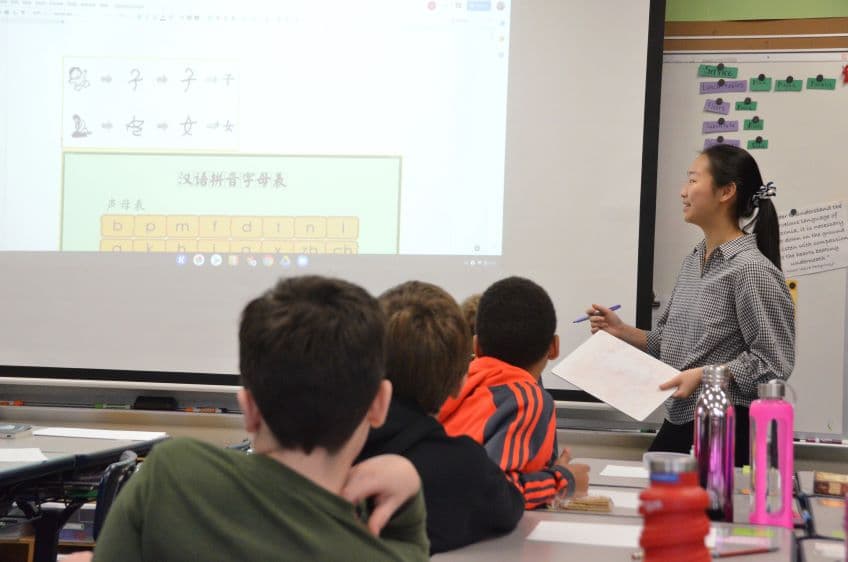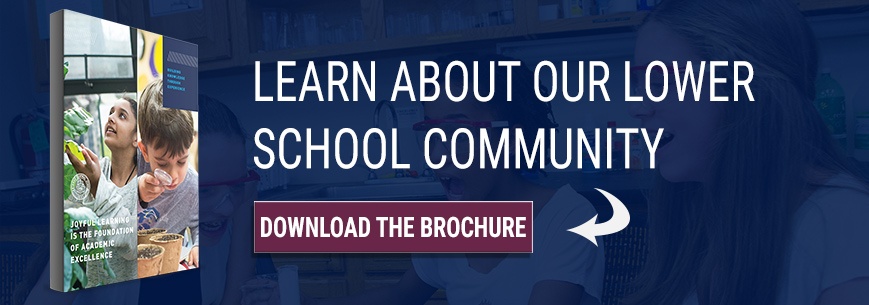
If nothing else, parents of elementary-aged students know one thing to be true: Planning and preparing for your child’s education can be an overwhelming and often confusing task. You want to ensure you are making the best possible choice, and setting your little one up for success mentally, emotionally and academically. But it’s not always obvious what the best choice is, and so many opinions and philosophies abound, each claiming to provide the best path forward.
Want to learn more about Friends' Central Lower School? Download our Brochure!
One of the most prevalent questions that arise as you set up your child’s academic future is the question of public vs. private education. And given the abundance of information and opinion about each, it’s important to thoroughly explore the advantages and disadvantages of each.
Below, we’ve answered some of the most common questions that parents have about a private elementary school education so that you can better answer the question of whether it is right for your family.
Is Private Elementary School Worth It?
Often, the immediate concern when considering private education is the cost associated with tuition. But while sticker shock may cause many to dismiss the idea of a private elementary education out of hand, it’s important to consider the private education experience an investment, and to assess all the benefits and values that it brings to the table.
A private elementary education affords students and their families with benefits that public education often cannot. Benefits such as:
- Highly-qualified teachers: Private and independent schools can set their own standards for who they hire. As a result, many require their teachers and educators to hold advanced degrees such as Master’s degrees or even PhDs. Ultimately, your child will be the person to benefit from the knowledge and expertise that these degrees imply. Similarly, being taught by someone with an advanced education can be incredibly inspiring for children, helping them understand the need for higher education in their own lives.
- Smaller class sizes with a more beneficial teacher-to-student ratio: Smaller class sizes give instructors the ability to tailor and differentiate their curriculum to all their students—affording each student the challenges and teaching style that are “just right” for their individual skills and needs. It also allows teachers to communicate more effectively and thoroughly with parents and families. With a smaller student body to focus more intently on, instructors are able to connect with parents more frequently, and in a more comprehensive fashion.
Independent and private institutions are also able to utilize more significant resources to bolster their students’ overall experience. Resources like extensive sports facilities and equipment, rich art and music programs, and a diverse roster of extracurricular activities, help create well-rounded students. These resources are typically not available at non-private, non-independent schools, and work to give private elementary students a true academic and social edge over their public school peers.
Often, however, the most compelling aspect of private elementary education, at least in the eyes of parents, is the sense that they are able to work shoulder-to-shoulder with both the administration, and their child’s teachers. At independent elementary institutions like Friends’ Central Lower School, the school’s curriculum and culture act as an extension of the student’s home experience, and teachers act as resources and partners for parents. Being encouraged to actively participate in their child’s education is an unusual, yet integral, element to a successful, healthy, academic start, and one of the hallmarks of private elementary education.
How to Determine if Private Elementary School is Right for Your Family
There is no “one-size-fits-all” element to early childhood education programs. Parents and families need to work to identify the values that are most important to them, and select an institution that most closely aligns with those ideals.
For instance, if your child is an intelligent, high-achieving, yet quiet and shy student, they may get “lost in the sauce” in larger, more test-centered schools. But in independent programs, like the one that drives Friends’ Central, the ratio of instructors to students, coupled with the advanced expertise and training of the teachers, allows for more tailored differentiated instruction. These teachers are free from the boundaries of standardized testing, and are able to focus more intently on each student and their specific strengths, weaknesses, and most importantly—their needs. In this environment, your quiet child, rather than getting lost in the shuffle, will thrive within a program developed just for them.
Ultimately, the choice to enroll your child in a private elementary school should be determined by how closely it aligns with your family’s values and whether or not you feel that the benefits offered by an independent elementary school are worth the investment.
The best way to get a good idea of the culture and how your family will fit will be to schedule an onsite interview. Bring your child along and allow them to explore their potential new environment. Watch how the teachers interact with your child. Be sure to observe the other children—make sure they seem happy, healthy and engaged. Get a good sense of the environment. Is it warm and engaging? Does it serve to inspire the student body? Be sure to also note how the teachers interact with you. Speak to other parents about the value they feel the institution adds to their family. Come prepared to ask any questions you have, and make sure you leave with a full idea of the experience your child will have.



